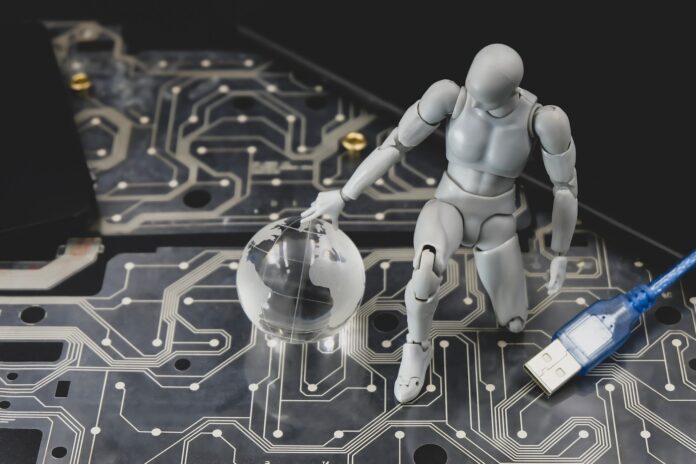Cybersecurity has been a concern for businesses and entities since the dawn of the internet. And, as communications technology evolves, so do the attack vectors.
A quick response enabled by immediate detection is often key with a cyber attack. If businesses can’t have their own detection and response teams, they may employ the Security Operations Centre (SOC) services of Managed Security Service Providers (MSSPs) like DigitalXRAID.
However, technology has been evolving rather rapidly, which means newer threats are emerging. And, as businesses adopt digital transformation, they need to be aware of potential dangers they might face.
Two such cyber security issues recently discussed have been cybersecurity in space and cyber risk due to climate change.
Cybersecurity in Space Deemed “Urgent”, Needing “High-Level Attention”, Says US National Cyber Director
The US National Cyber Director, Kemba Walden, spoke to reporters at the RSA conference on the 26th of April 2023.
She said cybersecurity in outer space was a pressing issue that was to be discussed in the first space industry cybersecurity workshop hosted by the White House.
“We are all aware that the first ‘shot’ in the current Ukraine conflict was a cyberattack against a US space company,” Walden said.
She was, of course, referring to Russia’s attempt to jam SpaceX’s Spacelink, which was being used to provide Ukraine with internet connectivity.
Walden called space systems cybersecurity “an incredibly complex and unique space ecosystem”, which required “a very close public-private partnership”.
She went on to explain that nation-state threat actors like China and Russia are being considered cyber threats to space systems, and calling such attacks—that on Starlink and the one on Viasat—“acts of war”.
Secure-by-design space technology is something that the White House has been talking about a lot recently.
Released last month, the White House’s Cybersecurity Strategy mentioned how space-based systems—including navigation, positioning, and environmental monitoring—needed to be secure.
Walden also mentioned that the US Space Policy Directive 5, which outlines cybersecurity design principles for space systems, is something they want to focus on.
The principles are being decided and the next steps would be to collaborate with the industry to put these into action.
How Climate Change Is Increasing Cyber-Risks
One would assume that climate change and cybersecurity are topics that are poles apart. However, there are several connections between these two issues.
These connections were highlighted by Chloe Messdaghi, CEO and Founder of Global Secure Partners.
According to Ms Messdaghi, issues caused by climate change provided more opportunities for threat actors to attack.
Attacks on Green Energy Sources
In order to reduce greenhouse emissions, the world is shifting towards green energy sources. These energy sources rely on new technologies. Since they are new, they may not have a well-rounded defence against cyber attacks.
For instance, electric vehicles are reliant on a network of charge points. These would be connected to the grid and managed through a central system. This could be targeted by threat actors.
Whilst this was a hypothetical example, Ms Messdaghi also brought up the cyber-incident at Vestas Wind Systems. That attack forced the world’s largest manufacturer of wind turbines to stop IT operations across a number of locations.
Extreme Weather Conditions Damaging Critical Digital Systems
Another risk that accompanies climate change that would affect cybersecurity is extreme weather events.
Climate change can result in more frequent and devastating hurricanes and tsunamis. These could affect critical digital systems—damaging underwater communications cables or off-site servers.
Any disruptions such damage would cause could be used as an opportunity by threat actors to attack.
Such weather events might also lead to an increase in remote working. If workers are not careful, they can be targeted for phishing attacks. These, in turn, could be used to get into the employers’ systems and data.
Deteriorating Relationships Between Countries
Climate change can lead to rising temperatures, which then affect geopolitical stability. As people are displaced due to famines caused by rising temperatures, the resulting migration could lead to tensions between countries.
These tensions could then be used as an excuse to conduct cyber attacks on the rival nation’s infrastructure.
It might sound incredible right now, but the pace at which technology is evolving means that we constantly need to look at cybersecurity from all angles. Because, even if we don’t, threat actors would definitely be trying to find any chinks in the cybersecurity armour.
(Threat actors are already using AI for creating malware, whilst cybersecurity experts are considering it for penetration testing.)
And, whilst things seem unrelated, nothing exists in isolation. We need to look at how changes in one system could affect the way it interacts with other systems.
Media Contact
Company Name: Geeky News
Contact Person: Press Officer
Email: Send Email
Phone: +44 (0)203 800 1212
Address:Parallel House, 32 London Road
City: Guildford
State: Surrey
Country: United Kingdom
Website: https://www.geekynews.co.uk/







